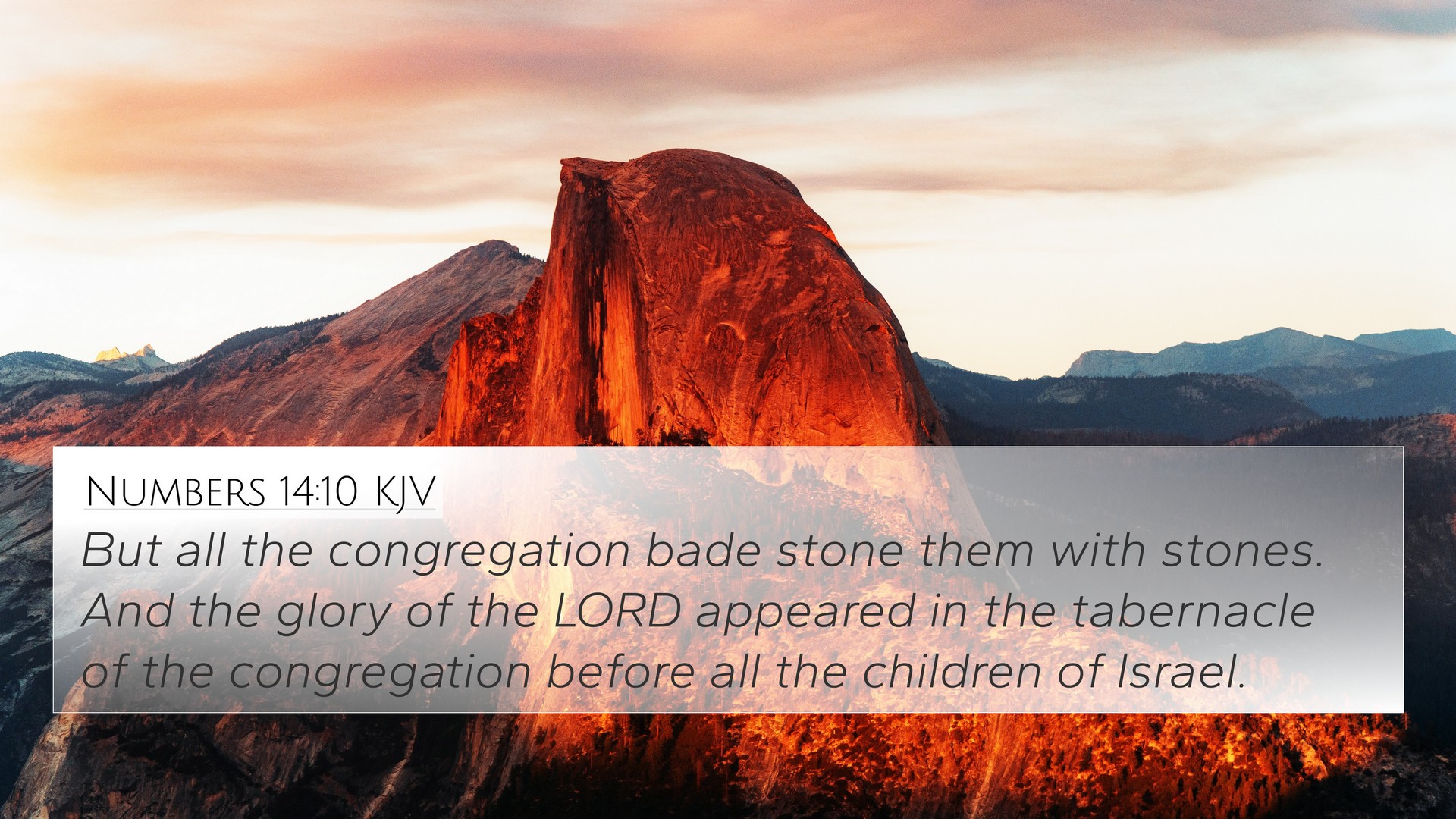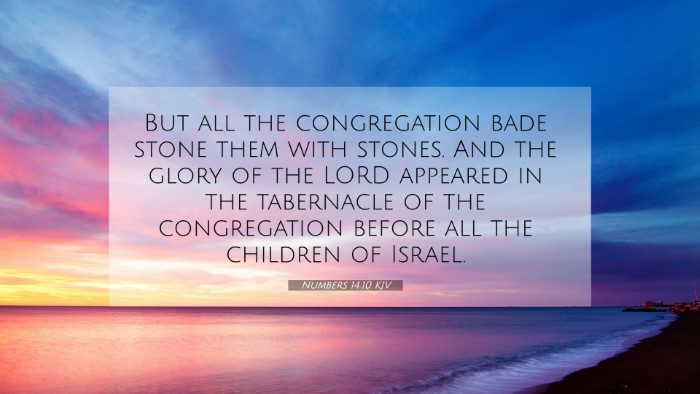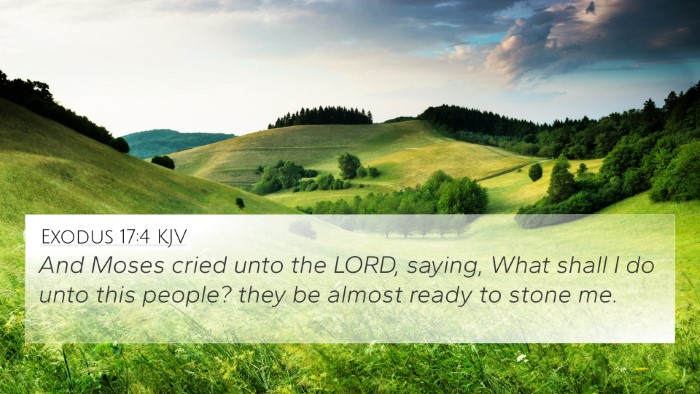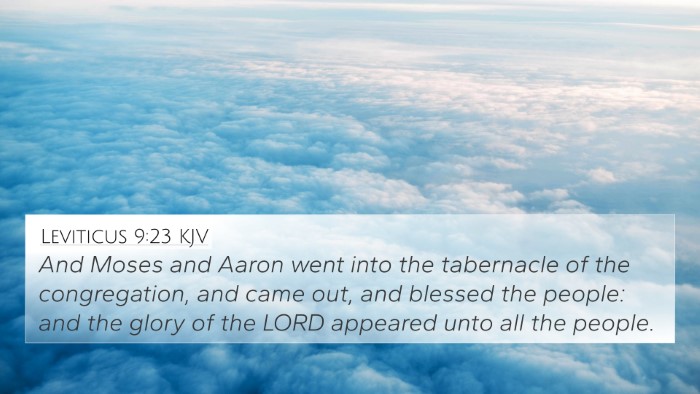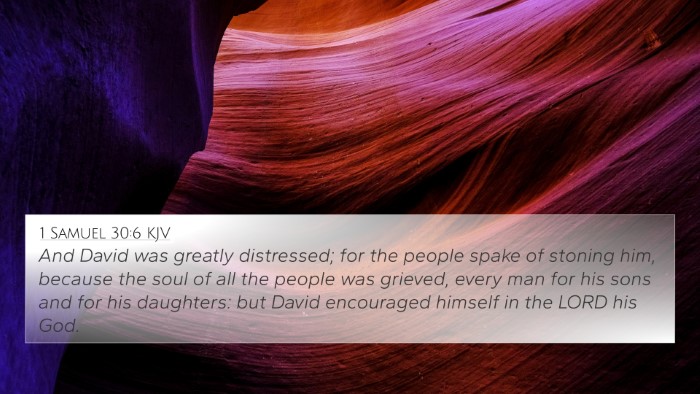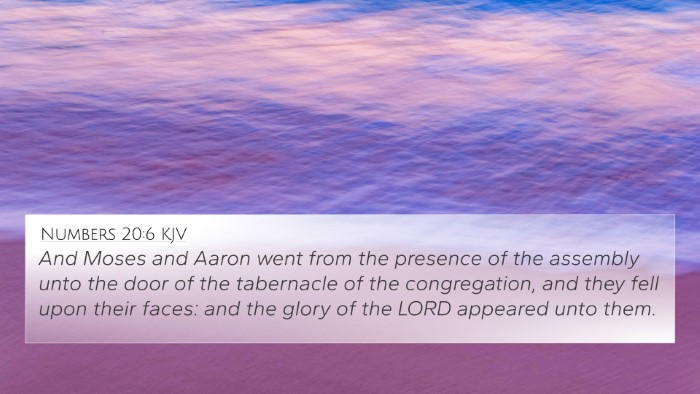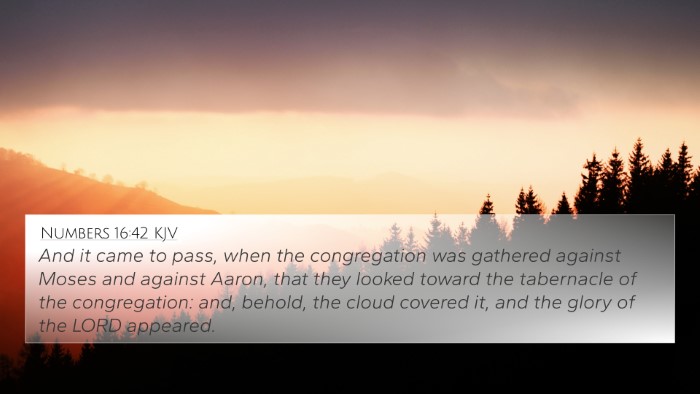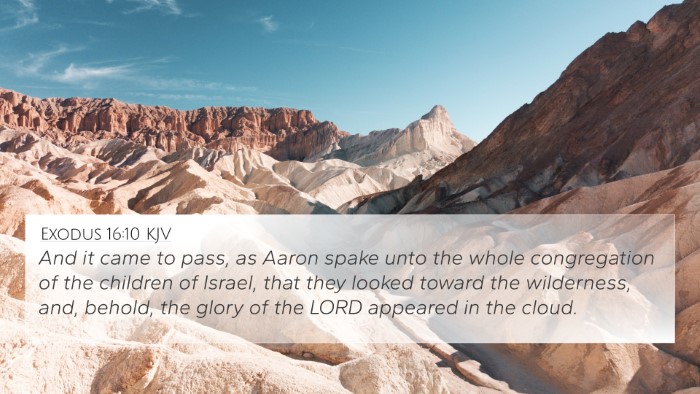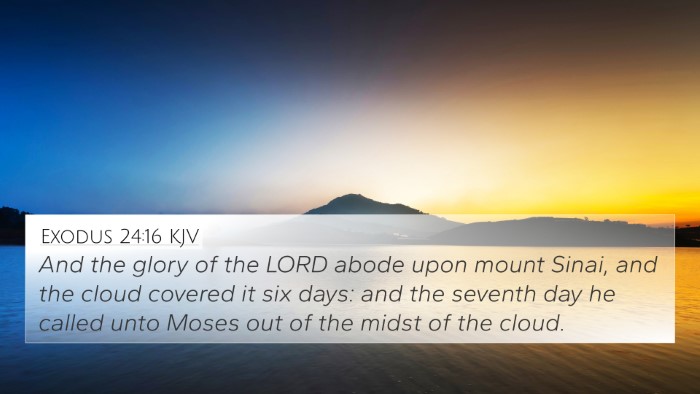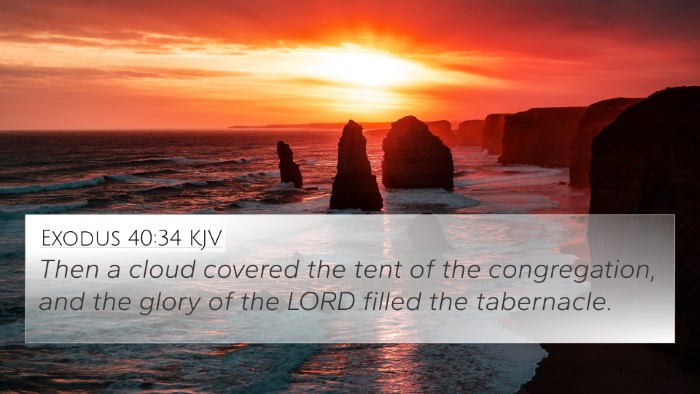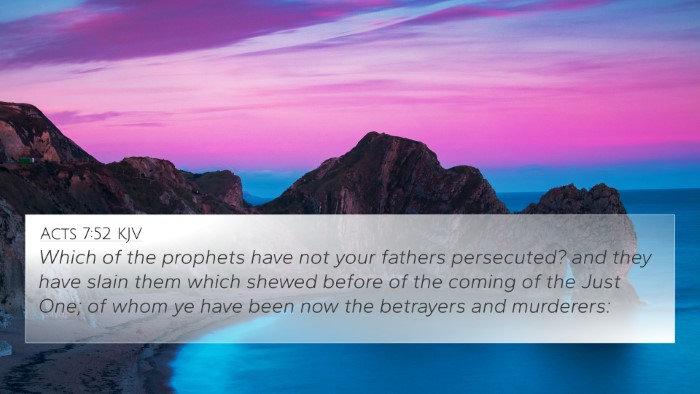Understanding Numbers 14:10
Verse Context: Numbers 14:10 says, "But all the congregation said to stone them with stones. And the glory of the LORD appeared in the tabernacle of meeting before all the children of Israel." This verse captures a pivotal moment when the people, faced with fear and rebellion against God's decree, reacted violently against Moses and Aaron after they presented a report of the Promised Land.
Commentary Overview
This commentary compilation includes insights from notable public domain sources such as Matthew Henry, Albert Barnes, and Adam Clarke. Each offers a unique perspective on the implications and meanings of this verse that connect with broader biblical themes.
Matthew Henry's Commentary
Matthew Henry points out that the people's rebellion was a grievous sin against God. Their desire to stone Moses and Aaron reflects their unwillingness to heed the divine message delivered through these leaders. Henry underscores how the appearance of God's glory serves as a divine intervention, highlighting His authority and judgment. It signifies God's displeasure with the people's defiance and their profound misunderstanding of His plan and character.
Albert Barnes' Commentary
Albert Barnes emphasizes the seriousness of the Israelites' actions. He notes that their anger was directed not just at Moses and Aaron, but indirectly at God, who sent them as leaders to guide the people. Barnes interprets this reaction as a display of misplaced trust, as the people chose to gravitate towards fear rather than faith. The phrase "the glory of the LORD appeared" is interpreted as God's affirmation of His chosen leaders and a reminder to the people of His sovereignty.
Adam Clarke's Commentary
Adam Clarke remarks on the calamity of the Israelites' decision. He explores the psychological aspects of their fear and highlights how collective fear can lead to collective rebellion. Clarke draws attention to the significance of God's glory manifesting at this crucial juncture, serving both as a protective measure for His servants and a cautionary sign for the people. The Divine presence calls for recognition and repentance from Israel.
Thematic Connections
Numbers 14:10 serves as a focal point for various themes found throughout the Bible, particularly themes of faith, rebellion, and divine intervention. The connectivity with other Scriptures enriches our understanding of God’s dealings with His people.
- Faith vs. Fear (Hebrews 3:12-19): Highlights the challenge of maintaining faith amidst trials.
- God's Glory (Exodus 33:18-22): A reminder of God's holiness and His presence among His people.
- Leadership and Rebellion (1 Samuel 8:7): Acknowledges the consequences of rejecting God-given leaders.
- Divine Judgment (Psalm 95:10-11): Reflects on the consequences of disbelief and rebellion.
- Rest in God's Promises (Matthew 11:28-30): The comfort found in trusting God's plans against fear.
- The Spirit of Rebellion (Jude 1:11): Warns against following the path of disobedience.
- Intercession by Leaders (Exodus 32:11-14): God's willingness to listen to those who intercede for others.
Cross-References and Connections
Exploring cross-references helps in understanding the interconnectedness of biblical texts and themes:
- (Exodus 17:4): Moses cries out to God in similar instances of distress.
- (Deuteronomy 1:26-30): Recap of Israel's past rebellion during their wilderness journey.
- (Matthew 23:37): Jesus laments over Jerusalem's rejection of His prophets.
- (Acts 7:57-60): The stoning of Stephen parallels Israel's rejection of leadership.
- (1 Corinthians 10:5): Warns against the outcomes of faithlessness among God's chosen people.
- (2 Timothy 3:12): Indicates that persecution is a part of following God.
- (Hebrews 11:6): Explores the necessity of faith in pleasing God.
Conclusion
Numbers 14:10 serves as a powerful reminder of the importance of faith and the dangers of rebellion against God's commands. The combined insights from various commentaries illuminate the verse's significance and its connection to broader biblical narratives and themes. Through careful study and cross-referencing with related scriptures, believers can deepen their understanding of God's character, the role of leadership, and the call to faithfulness.
